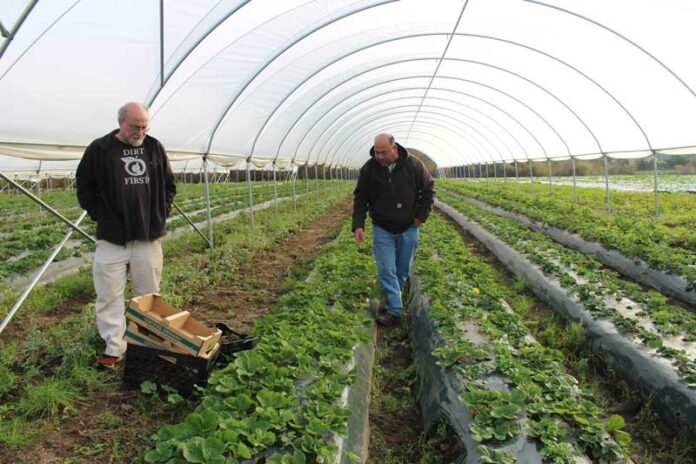
CENTRAL COAST—Executive director of the Ecological Farming Association (EcoFarm) Andy Fisher had only been in the position for six months before the pandemic hit California.
Fortunately, Fisher and his team had been able to hold their 40th annual conference in Pacific Grove that January. But in 2021, the event had to pivot to a virtual format.
Things were looking promising for a return to in-person events in 2022, until Covid-19 cases began to rise over the holidays. The Tuesday after New Year’s Day—less than three weeks before the event would take place—Fisher and organizers made the decision to go back online.
“Nobody’s exactly happy about it,” Fisher said. “I was hoping that we could still do it, but it started sort of crumbling from the inside out. Everyone was canceling … attendees and speakers began pulling out. It became obvious … with the Omicron surge, we knew this was the responsible thing to do.”
Fisher said that feedback has been overwhelmingly supportive.
“A lot of people were really grateful,” he said. “They were on the verge of having to make a decision, if they were going to come or not. They told us, ‘You made the decision for me, so thank you.’”
EcoFarm’s 42nd annual conference has been rescheduled for March 14-18 and will be held mostly online, with the possibility of in-person field days at various farms across the region.
Deborah Yashar, marketing and communications officer for EcoFarm, said that there are benefits of staying virtual.
“The good thing is, more people can join in,” she said. “Last year we had representation from 19 countries. That’s unprecedented for us.”
Javier Zamora, farmer and owner of JSM Organic Farms in Royal Oaks, agreed.
“We have to get used to new ways of conducting ourselves and learning,” he said. “I have seen through this pandemic, going virtual … it has helped so many people who can’t usually go places, get involved. It shows you that out of a negative, can come something good.”
On a mild, mid-January morning, Fisher visited JSM Organics to see what might be possible for a springtime field day at the farm. Zamora showed him fields of berries, ornamental cabbage and other crops, many of them now growing under large hoop coverings. The coverings, Zamora said, have helped the farm grow things like strawberries and blackberries in the winter.
“When people come out to the farm, they get to actually see what we do—what an organic farm actually is,” Zamora said. “There’s basically no strawberries around here until April … But then you come here and see this. You see that if you tweak things a little bit and be innovative, you can still grow. When you visit, you see that with your own eyes.”
New this year, EcoFarm will be offering a virtual platform that will allow people to connect year-round to conference participants worldwide.
“That will give people more opportunities than just a one-off conference,” Yashar said. “We’ll have more information about that soon.”
For those who were already registered for the in-person event, organizers will be in touch about getting a refund or donating registration fees.
“We really do appreciate the support from folks,” she said. “It’s a hard time right now. It’s like this year’s theme: ‘Rooted in Resilience’ … We are definitely using that resilience right now.”
EcoFarm is the oldest and largest ecological farming conference in the West. It serves as a stage for farmers, ranchers, distributors, retailers, activists, researchers and educators to participate in conversations focused on food and farming’s future.
As one of the most influential events in the sustainable agriculture world, EcoFarm Conference also serves as a hub for building climate-resilient and equitable agriculture in California and beyond.












